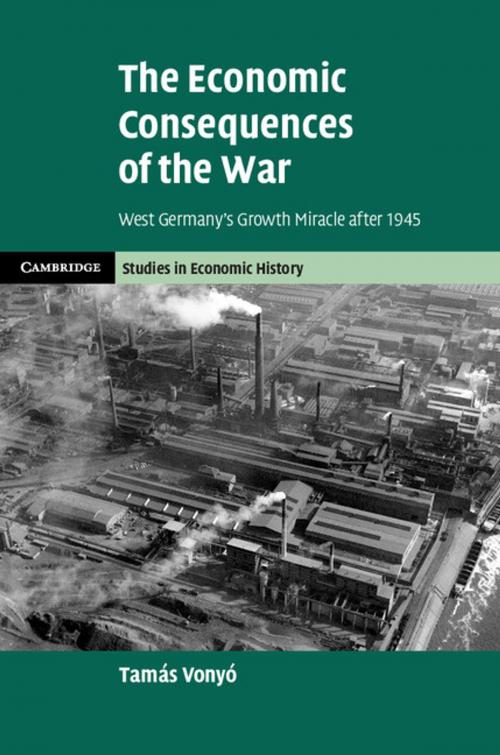The Economic Consequences of the War
West Germany's Growth Miracle after 1945
Business & Finance, Economics, Economic History, Nonfiction, History| Author: | Tamás Vonyó | ISBN: | 9781108567398 |
| Publisher: | Cambridge University Press | Publication: | February 22, 2018 |
| Imprint: | Cambridge University Press | Language: | English |
| Author: | Tamás Vonyó |
| ISBN: | 9781108567398 |
| Publisher: | Cambridge University Press |
| Publication: | February 22, 2018 |
| Imprint: | Cambridge University Press |
| Language: | English |
The 'German Question' dominated much of modern European history. In 1945, Germany was defeated and conquered. Yet, the Second World War did not destroy the foundations of her economic power. Dr Tamás Vonyó revisits Germany's remarkable post-war revival, tracing its roots not to liberal economic reforms and the Marshall Plan, but to the legacies of the war that endowed Germany with an enhanced industrial base and an enlarged labour force. He also shows that Germany's liberal market economy was in reality an economy of regulated markets, controlled prices and extensive state intervention. Using quantitative analysis and drawing on a rich historiography that has remained, in large part, unknown outside of Germany, this book reassesses the role of economic policy and the importance of wartime legacies to explain the German growth miracle after 1945 and the sharply contrasting experiences of East and West Germany.
The 'German Question' dominated much of modern European history. In 1945, Germany was defeated and conquered. Yet, the Second World War did not destroy the foundations of her economic power. Dr Tamás Vonyó revisits Germany's remarkable post-war revival, tracing its roots not to liberal economic reforms and the Marshall Plan, but to the legacies of the war that endowed Germany with an enhanced industrial base and an enlarged labour force. He also shows that Germany's liberal market economy was in reality an economy of regulated markets, controlled prices and extensive state intervention. Using quantitative analysis and drawing on a rich historiography that has remained, in large part, unknown outside of Germany, this book reassesses the role of economic policy and the importance of wartime legacies to explain the German growth miracle after 1945 and the sharply contrasting experiences of East and West Germany.















